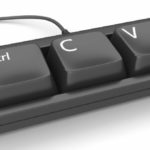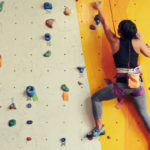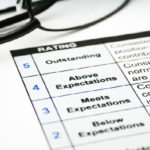Cheating and its related issues have been studied extensively for decades. There’s an overwhelming amount of literature. However, results from the past and the present confirm that cheating has been and continues to be a serious problem in higher education.
Here’s an overview of what’s been studied and is known about cheating. The answers provided are broadly supported by the research and illustrated here with brief highlights from a few sample studies. This overview focuses on work published since 2000. Plenty of good research was done before then and is well summarized by McCabe, Trevino, and Butterfield (2001). The findings reported previously continue to be supported by more recent research.
How widespread is cheating? It depends on the study but most report the percentage of students who cheat in the 50-90% range.
Cheating in classrooms
- 75% of 824 students in 14 different graduate and undergraduate business classes. (Chapman, David, Toy, and Wright, 2004)
- 5% of all students at a small liberal arts institution. Cheaters were defined as students who more than once engaged in any one of 17 cheating behaviors. (Kidwell, Wozniak and Laurel, 2003)
- 92% of students surveyed in an online business course had cheated or knew someone who had (Jones, 2011)
- 86% of a 268-student cross disciplinary sample reported they had cheated (Klein, et. al. 2006)
Cheating in online courses
- Almost 75% of a cohort of 121 undergraduate business students believe that was easier to cheat in online courses than in traditional classrooms (King, Guyette, Piotrowski, 2009).
- When 84 MBA and undergraduate business were asked, 47% of MBA students and almost 38% of undergraduates thought it was easier to cheat in online courses (Larkin and Mintu-Wimsatt, 2015)
Are students cheating more than they used to? Yes.
- Using the questionnaire used in 1999, researchers found significant increases for 7 of 16 practices. The mean increase was 19.2%. (Brown and McInerney, 2008).
Why are students cheating? The reasons vary but most commonly they do so for better grades, for reasons related to time pressures and because they can.
- 92% said for better grades and 80% said because they’d procrastinated (Jones, 2011)
- Using a fraud triangle theory—people commit fraud when there’s incentive and/or pressure, opportunity, and rationalization or attitudes—researchers found these reasons were a “significant determinant” of student cheating (p. 37). The incentive is grades with pressure from parents, the opportunity occurs when no one is looking, and the rationalization is the attitude that everybody’s doing it. (Becker, et. al., 2006)
- Analysis of 298 open-ended responses of undergraduates who had been reported for cheated revealed four themes related to why the students cheated; 1) they didn’t know they were cheating; 2) they blamed the professor who should have done something differently; 3) they didn’t have enough time, resources, or skills, and none of that was their responsibility; or 4) they didn’t have the time, resources, or skills, and they accepted responsibility for what contributed to their cheating (Beasley, 2014).
What behaviors are considered cheating? With some behaviors (copying answers, turning in someone else’s work) there’s widespread agreement. For other behaviors (like plagiarism) there’s confusion. And there are certain areas of significant disagreement between students and faculty (such as collaboration on take-home exams).
- 100% of students said turning in another person’s assignment as your own was cheating; 92% said cutting and pasting a paper together using online materials without appropriate citations was cheating, and 75% said purchasing a paper from a research service or downloading one from the internet was cheating. However, only 17% thought that turning in an assignment they had previously submitted for another class was cheating. (Jones 2011)
- At a small liberal arts university, the most common forms of cheating were plagiarizing small passages and unpermitted collaboration on assignments that were supposed to be completed individually. Fifty percent of the students rated these as trivial cheating; 33% did not consider them cheating. (Kidwell, Wozniak and Laurel, 2003)
- 172 students taking introductory chemistry courses were asked to define plagiarism in their own words. 29.5% defined it incorrectly, 47.6% offered partially correct definitions, and 22.9% wrote highly correct definitions. (Simon, et. al., 2004)
- A survey of 233 business faculty identified three forms of student cheating; paper-based, Internet-based, and direct exam cheating. Those three explained 63% of the variance (Blau, et. al, 2017).
Do students recognize that cheating is unethical? Yes, in a very general sense, students understand that cheating is unethical. However, the seriousness of the offense appears to be declining.
- In 2003, 92% of a cohort of community college students said it was unethical (Smyth and Davis, 2003). In 2013, the percentage who said yes dropped to 64% (Bernardi, Goetjenand Brax, 2013).
- In one study with an international cohort of business and economics students, 49% of the U.S. students and 57% of those in other countries reported that even though cheating was unethical, it was socially acceptable.
- In a study at a large Australian university, 50% of the 3,405 students who responded said they had not read the University’s policy on academic integrity, which had been sent to them. (Gullifer and Tyson, 2014)
How often do students report the cheating and which students are more likely to report it? The percentages who report vary but most are well below 50% and women are more likely to report it than men.
- In a survey of 172 undergraduates taking beginning chemistry courses, 35.7% said they would report cheating; 46% of the females would report it and less than 30% of the males would. (Simon, et. al. 2004).
- In a study involving accounting students, almost 93% reported they’d witnessed another student cheating, only 4.4% reported the cheating. (Bernardi, Goetjen, and Brax, 2013)
- Women in this cross disciplinary study reported cheating more often than men. (Simon, et. al. 2004)
Who cheats the most and the least? A variety of individual and situational factors have been shown to be related to cheating. However, in most cases, research results are mixed, with the most notable example being gender. Most of the research exploring who cheats was conducted before for 2000. See McCabe and Trevino (1997) for an example.
- Business students didn’t cheat more than students in six other professional schools, but had more lax attitudes toward cheating (Klein, et.al., 2006).
- Students with lower GPAs cheated more than those with higher GPAs (Klein, et.al. 2006).
Does cheating in college predict cheating in the workplace? Yes.
- According to survey data collected from 1,051 business students at six different locations, “Students who engaged in dishonest acts in college classes were more likely to engage in dishonest act in the workplace (p. 76, Nonis and Swift, 2001).
- “Students who cheat on exams or who plagiarize papers were more likely to be accepting of the need for unethical behaviors in the workplace than those who did not engage in academic dishonesty” (p. 195, Lawson, 2004).
What works to decrease the amount of cheating? The fear of getting caught.
- In a study that used various cheating scenarios, the likelihood of cheating on an online exam dropped from 42% to 14% when students believed there was a higher risk associated with the cheating action. (Chapman, David, Toy, and Wright, 2004)
What is the faculty response to the cheating problem?
- Of 233 business faculty, 31% reported they did not understand the process for reporting cheating at their institution (Blau, et. al. 2017)
References
Beasley, E. (2014). Students reported for cheating explain what they think would have stopped them.
Ethics and Behavior, 24 (3), 229-252.
Becker, D., Connolly, J., Lentz, P. and Morrison, J. (2006). Using the business fraud triangle to predict academic dishonest among business students.
Academy of Educational Leadership Journal, 10 (1), 37-54.
Blau, G., Kunkle, M., Mittal, N., Rivera, M., and Ozkan, B. (2017). Measuring business school faculty perceptions of student cheating.
Journal of Education for Business, 92 (6), 263-279.
Brernardi, R. Goetjen, E., and Brax. J. (2013). Whistle-blowing in the classroom. The influence of students’ perceptions of whistleblowers,
Accounting for the public interest: An international perspective on accounting in society. In S. Mintz (Ed.)
The advances in business ethics research series (4
th ed., pp. 247-271), Dordecht: Springer Science Press.
Chapman, K., Davis, R., Toy, D. and Wright, L. (2004). Academic integrity in the business school environment: I’ll get by with a little help from my friends.
Journal of Marketing Education, 26 (3), 236-249.
Brown, B. and McInerney, M. (2008). Changes in academic dishonesty among business students in the United States, 1999-2006.
International Journal of Management, 25 (3), 621-632.
Grimes, P. (2004). Dishonesty in academics and business: A cross-cultural evaluation of student attitudes.
Journal of Business Ethics, 49 (3), 273-290.
Gullifer, J., and Tyson, G. (2014). Who has read the policy on plagiarism? Unpacking students’ understanding of plagiarism.
Studies in Higher Education, 39 (7), 1202-1218.
Jones, D. (2011). Academic dishonesty: Are more student cheating?
Business Communication Quarterly, 74 (2), 141-150.
Kidwell, L., Wozniak, K., and Laurel, J. (2003). Student reports and faculty perceptions of academic dishonesty.
Teaching Business Ethics, 7 (3), 205-214.
King, C., Guyette, R., and Piotrowski, C. (2009). Online exams and cheating: An empirical analysis of business students’ views.
The Journal of Educators Online 6 (1), 11 pages
Klein, H., Levenburg, N., McKendall, M., and Mothersell, W. (2006). Cheating during the college years: How do business students compare?
Journal of Business Ethics, 72, 197-206.
Lawson, R. (2004). Is classroom cheating related to business students’ propensity to cheat in the “real world”?
Journal of Business Ethics, 49 (2), 189-199.
McCabe. D., and Treveno, L. (1997). Individual and contextual influences on academic dishonesty.
Research in Higher Education, 38 (3), 379-396.
McCabe, D., Trevino, L., and Butterfield, K. (2001). Cheating in academic institutions: A decade of research.
Ethics & Behavior, 11 (3), 219-232.
Nonis, S. and Swift, C. (2001). An examination of the relationship between academic dishonesty and workplace dishonesty: A multicampus investigation.
Journal of Education for Business, 77 (2), 69-78.
Simon, C., Carr, J., McCullough, S., Morgan, S., Oleson, T., and Ressel, M. (2004). Gender, student perceptions, institutional commitment and academic dishonesty: who reports in academic dishonesty cases?
Assessment & Evaluation in Higher Education, 29 (1), 75-90.
Smyth, M. and Davis, J. (2003). An examination of student cheating in the two-year college.
Community College Review, 31 (1), 17-32.













